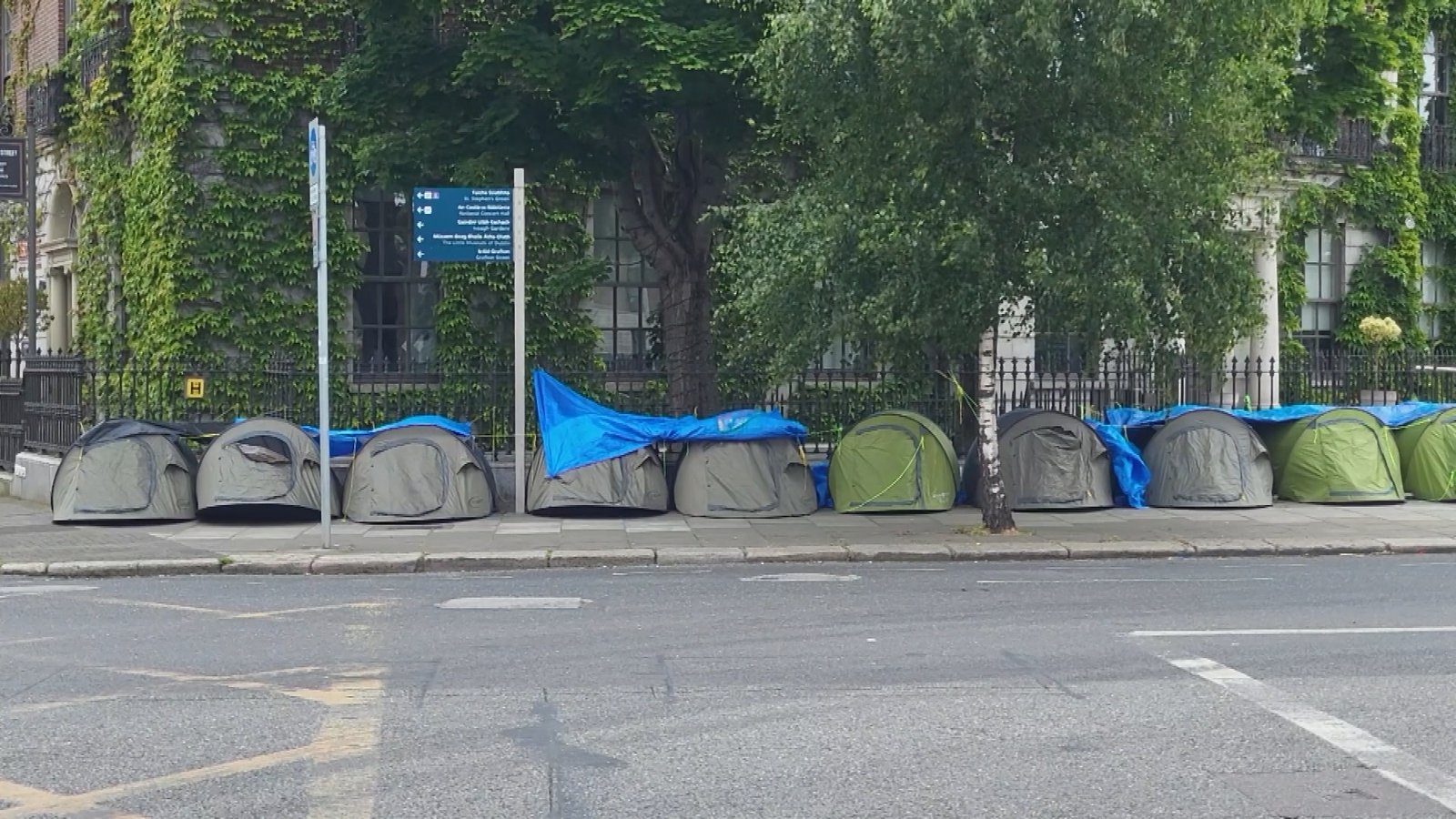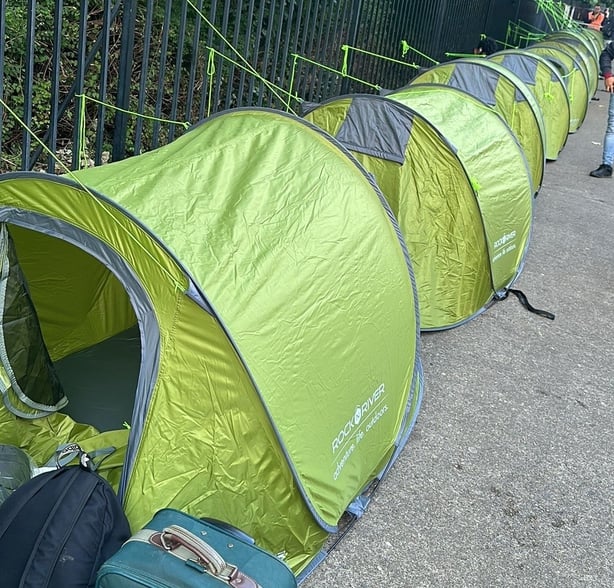World
Gardaí have ‘no role’ in rough sleeper referrals to IPAS

As barriers remain in place across large parts of the city centre, and rough sleeping asylum seekers are increasingly moved on from place to place, one possible route to a bed in serviced secure State provided accommodation for those without shelter, now appears closed.
An Garda Síochána has been cited by the Department of Integration as a body that could refer rough sleeping asylum seekers to the International Protection Accommodation Service (IPAS) for priority accommodation.
However a garda spokesperson told RTÉ News that it has no such role.
“An Garda Síochána has no responsibility in assessing people for accommodation” they said, and “it is not involved” in referring rough sleeping International Protection applicants to IPAS.
The spokesperson said that “An Garda Síochána regularly engage with persons sleeping rough, carrying out welfare checks”, and that this includes rough sleeping asylum seekers, but that “the position of An Garda Síochána is that it is not involved in referrals.”
The spokesperson said An Garda Síochána does inform IPAS if there is an encampment of unaccommodated International Protection applicants in a particular area, but re-iterated that it was not within their remit to pass on “lists of names” or the personal details of individuals.
On 4 December, the day the State ceased offering accommodation to all make asylum seekers citing a “severe shortage”, a spokesperson for the Department of Integration said: “IPAS is actively engaging with stakeholders to prevent unaccommodated International Protection (IP) applicants from becoming street homeless and is in constant contact with Dublin Homeless Supports, An Garda Síochána, and Department of Social Protection colleagues for this purpose.”
On 1 March, a spokesperson for the department told RTÉ News that there were “numerous referral pathways” onto the priority accommodation list for rough sleeping International Protection applicants “such as via homeless services, non-governmental organisations and An Garda Síochána.”
And in an affidavit read out in High Court proceedings last month, Assistant Secretary General David Delaney at the Department of Integration said that: “IPAS has been liaising closely with charities and An Garda Síochána order to identify any IP (International Protection) applicant sleeping outdoors encountered during outreach programmes or during nightly patrols. People who are referred directly by An Garda Síochána are triaged and accommodated immediately.”
When asked to respond to comments from a garda spokesperson that An Garda Síochána has no role in referring rough sleeping International Protection application a Department spokesperson said: “Referrals for those who are rough sleeping are currently done through homeless outreach partner organisations.”
The spokesperson said that “IPAS is in ongoing contact with An Garda Síochána and other agencies in relation to the welfare and accommodation of IP applicants who are sleeping rough.
“Where tents are removed, the (State) agencies and NGOs involved liaise with IPAS in relation to accommodation availability at that time and provide appropriate information and guidance to the IP applicants involved.”
However volunteers who have been supporting the rough sleeping asylum seekers have said that no clear information is being given to the men who are being moved, and instead they have repeatedly been incorrectly instructed to go to the International Protection Office, only to be immediately turned away.

Over the last ten days rough sleeping asylum seekers have been told to move from where they had pitched their tents in city centre locations on around ten separate occasions.
On Tuesday and on Friday this week, Dublin City Council “with the support of An Garda Síochána carried out an operation to remove a number of tents” from Leeson Street and Merrion Square respectively.
However, unlike previous multi-agency operations, the Department of Integration was not involved and offers of alternative accommodation were not linked directly to the removal of the tents.
On Tuesday, a spokesperson for Dublin City Council said it “has no role in accommodating International Protection applicants and Government Information Services or IPAS should be contacted on this matter.”
In addition to the two DCC led operations, there were other occasions in the last week where gardaí have instructed rough sleeping asylum seekers to move their tents.
A spokesperson said that “An Garda Síochána also has an obligation to respond to complaints being received about encampments.”
RTÉ News understands that no NGOs were involved in these operations.
However volunteers have been advocating on behalf of those who have been moved on, and have made repeated requests to gardaí and to IPAS for those men to be placed on a priority accommodation list.
Volunteer Olivia Headon said that some of the unaccommodated asylum seekers were offered accommodation, however others remain without.
“To our volunteer group and the men, it seems ad hoc what bodies are involved in referrals or are aware each time about them, and which of them then informs IPAS or whether those referrals are actioned,” Ms Headon said.
“Nearly all of these men have been referred as rough sleepers to IPAS on several occasions already, and the only times we have witnessed rough sleepers be accommodated directly (after they have been made to move) that we are sure of, are either when IPAS are present or the police agree to conduct emergency referrals” Ms Headon said.
A spokesperson for the Department on Integration said that “Government departments and agencies are working together on a daily basis to co-ordinate their activities in response to the overall daily arrivals, and to assess capacity to accommodate rough sleepers in a constantly-evolving situation.”










